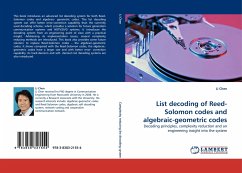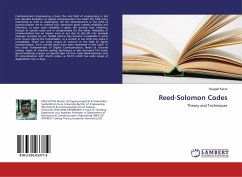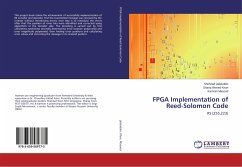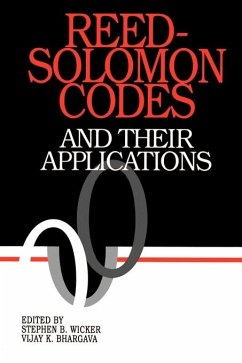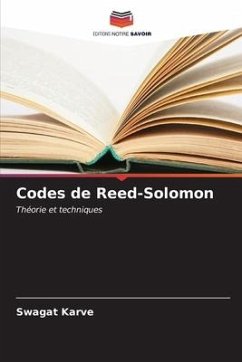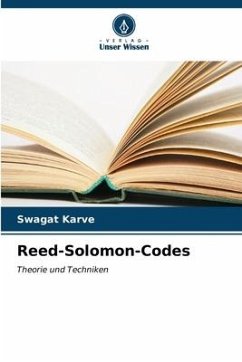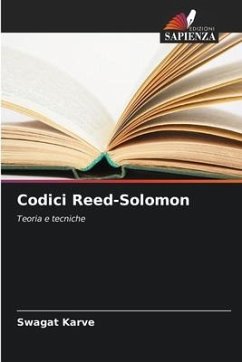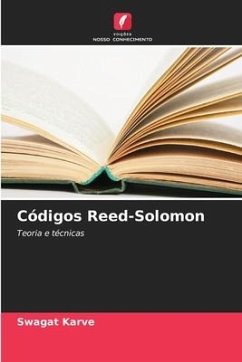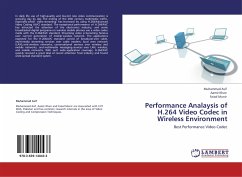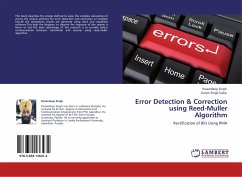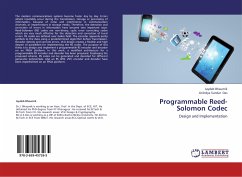
Programmable Reed-Solomon Codec
Design and Implementation
Versandkostenfrei!
Versandfertig in 6-10 Tagen
27,99 €
inkl. MwSt.

PAYBACK Punkte
14 °P sammeln!
The modern communications systems become faster day by day. Errors almost inevitably occur during the transmission, storage or processing of information, because of noise and interference in communication channels, or imperfections in storage media. Therefore, the detection and correction of errors in information have become very important issue. Reed-Solomon (RS) codes are non-binary, cyclic error correcting codes which are very much effective for the detection and correction of burst errors. RS codes are defined over Galois field. The encoder appends parity symbols to the data using a predet...
The modern communications systems become faster day by day. Errors almost inevitably occur during the transmission, storage or processing of information, because of noise and interference in communication channels, or imperfections in storage media. Therefore, the detection and correction of errors in information have become very important issue. Reed-Solomon (RS) codes are non-binary, cyclic error correcting codes which are very much effective for the detection and correction of burst errors. RS codes are defined over Galois field. The encoder appends parity symbols to the data using a predetermined algorithm before transmission. Decoder detects and corrects errors. VLSI design creates a flexible and high degree of parallelism for implementing the RS codes. The purpose of this thesis is to design and implement a programmable RS encoder and decoder on an FPGA platform. In this work, a modified architecture for a programmable RS encoder and decoder has been proposed. Employing theproposed scheme, RS codes can be generated and decoded for different generator polynomials. Also an RS (255, 251) encoder and decoder have been implemented on an FPGA platform.



